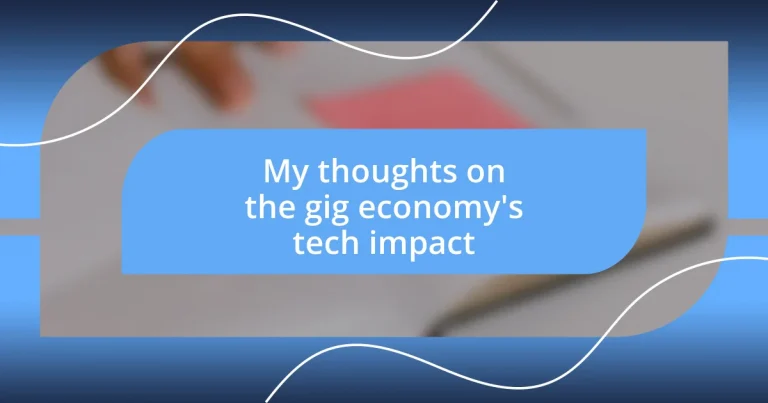Key takeaways:
- The gig economy offers flexibility and freedom, but also presents challenges like inconsistent income and lack of benefits.
- Technology is reshaping work dynamics, enabling remote collaboration and the use of data analytics, while also emphasizing the importance of online presence.
- Future trends in gig work may include AI-driven platforms for job matching, blockchain for secure payments, and community-driven networks to enhance worker connections.
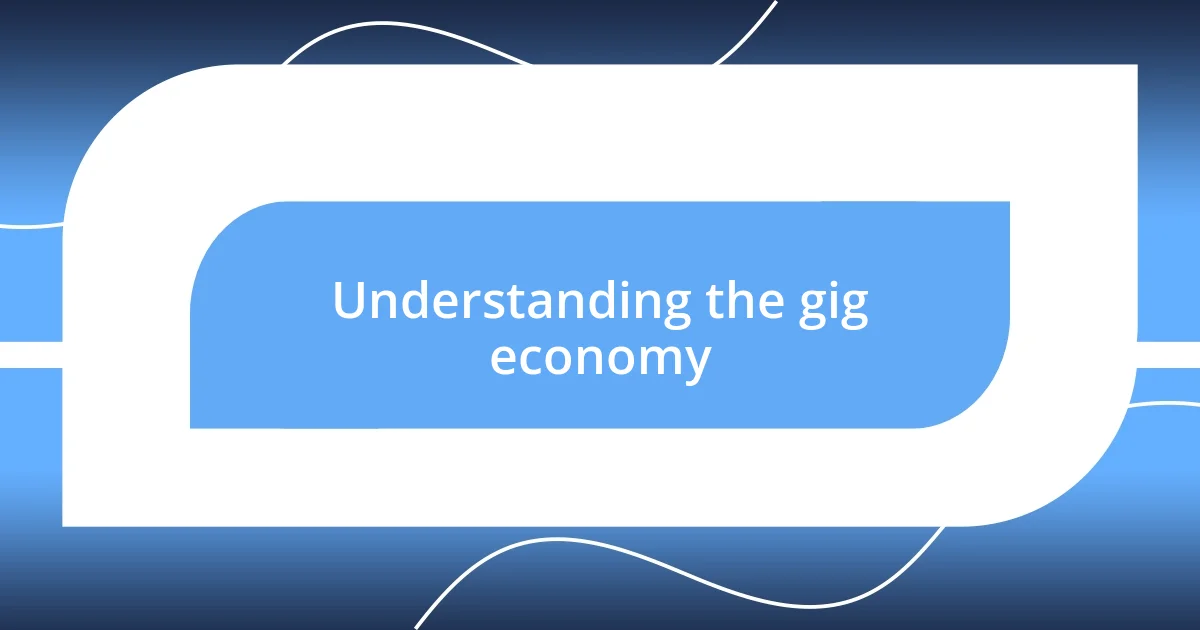
Understanding the gig economy
The gig economy refers to a labor market characterized by short-term, flexible jobs often mediated by online platforms. I remember when I first dabbled in this world; after losing a traditional job, I turned to freelance writing. It was exhilarating but also daunting, and I couldn’t help but wonder—could this really be a sustainable way to work?
From what I’ve observed, the gig economy offers freedom that traditional jobs often can’t match. While some thrive on the flexibility, others, like a friend of mine who juggles multiple gigs, face the stress of unpredictable income. Isn’t it fascinating how the same setup can bring both liberation and anxiety?
Platforms like Uber and TaskRabbit have changed the landscape, making it easier than ever for people to monetize their skills. However, I often reflect on the lack of benefits that come with gig work. Is this really progress if many workers find themselves without health insurance or retirement savings? The complexity of these situations leads us to question what true job security looks like in our modern economy.
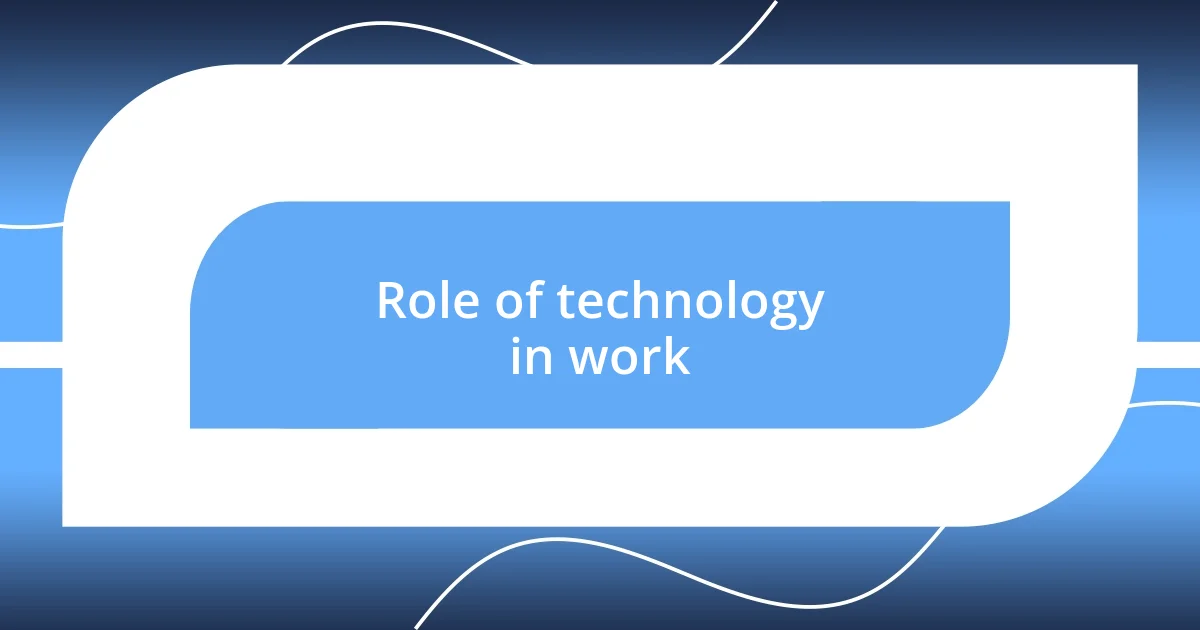
Role of technology in work
Technology has reshaped our approach to work in profound ways. When I first started using online job platforms, I felt a mix of excitement and intimidation. The ability to find work at the click of a button was thrilling. However, I quickly learned about the importance of building an online presence to stand out amidst a sea of talent.
The rise of remote collaboration tools has further transformed the workplace. I often collaborate with people from different continents, thanks to platforms like Slack and Zoom. It’s amazing how easily technology bridges physical distances, yet I sometimes miss the personal touch of face-to-face interactions. The balance between digital communication and genuine connection is something we all navigate daily.
Moreover, data analytics has become an invaluable asset in various industries. I was astonished when my friend, who runs a small marketing firm, shared how he uses analytics to tailor his services. It empowers businesses to meet the specific needs of clients while also driving efficiency. With this tech-driven approach, I’ve noticed a shift in the focus from quantity to quality, enabling more targeted solutions in the gig economy.
| Aspect | Traditional Work | Gig Economy |
|---|---|---|
| Job Security | Often Stable | Variable |
| Flexibility | Limited | High |
| Benefits | Provided | Usually Lacking |
| Collaboration | In-Person | Remote |
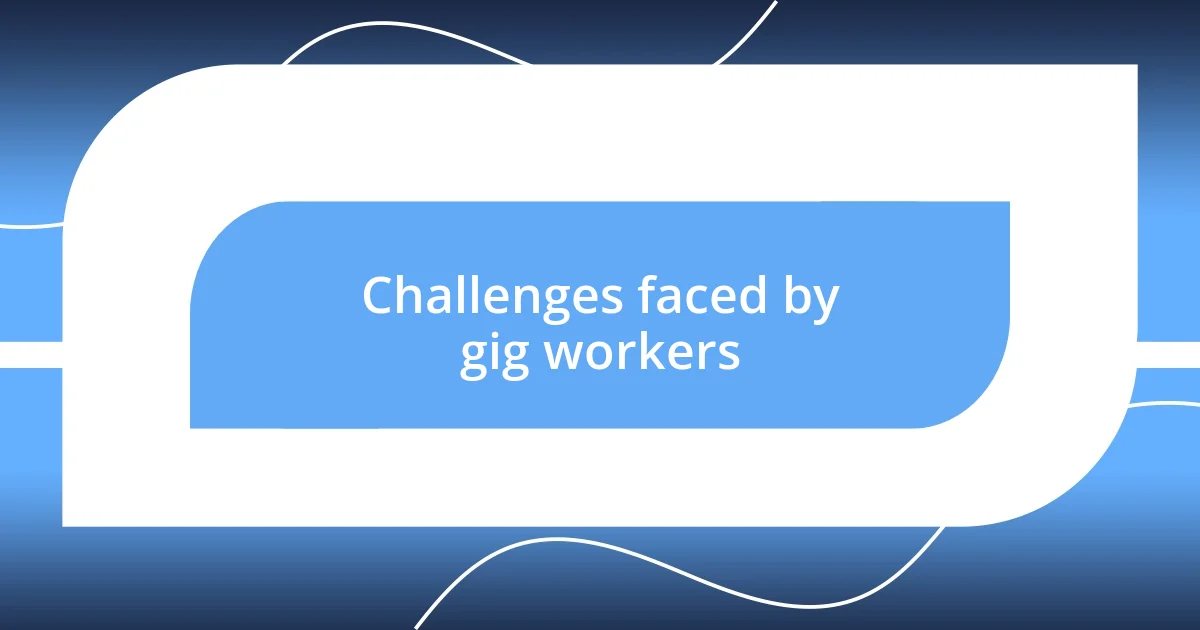
Challenges faced by gig workers
Facing the reality of gig work can be tough. I recall a weekend when I committed all my time to three different projects, only to wonder if any of them would actually pay off. The unpredictability of income can gnaw at your peace of mind. Like many freelancers, I often juggle various gigs, and that constant hustle can lead to burnout. The challenge is not just about finding work, but also managing the emotional rollercoaster that comes with it.
Here are some challenges gig workers commonly face:
- Inconsistent Income: Earnings can vary significantly from week to week, making budgeting difficult.
- Lack of Benefits: Many gig workers don’t have access to health insurance or retirement plans.
- Job Security: Without a stable employer, there’s a constant worry about job availability and longevity.
- Isolation: The remote nature of gig work can sometimes feel lonely without regular interaction with colleagues.
- Self-Employment Taxes: Understanding and managing taxes can be complex and daunting for those new to freelancing.
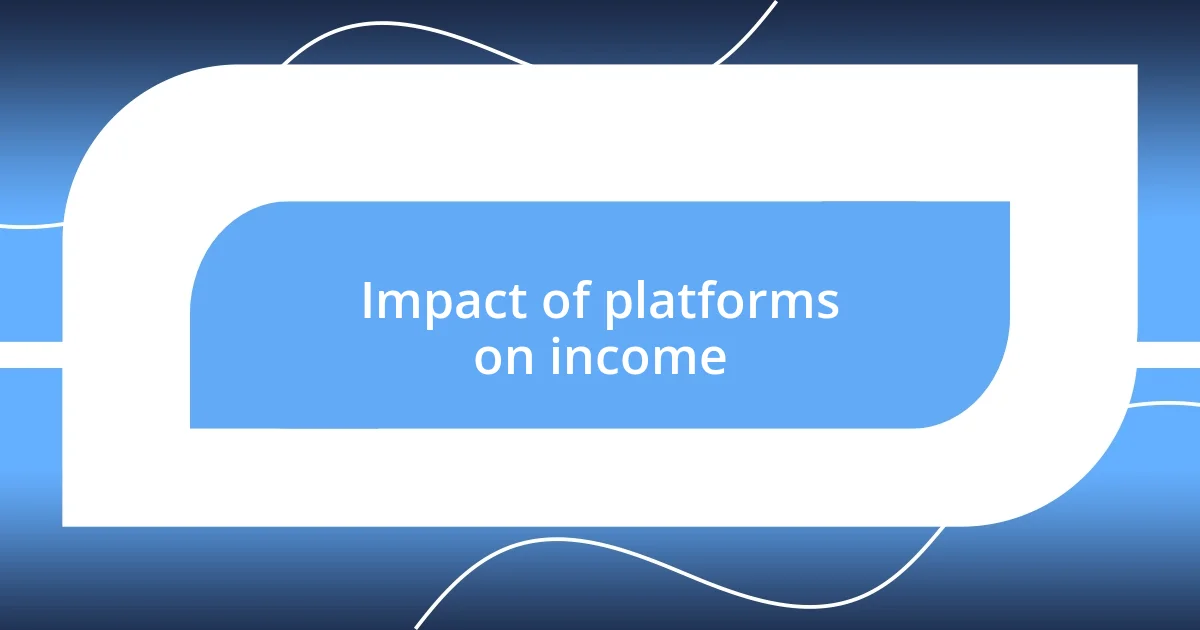
Impact of platforms on income
The income landscape in the gig economy is particularly influenced by the platforms themselves. When I first dipped my toes into freelance writing on a popular platform, I was struck by how fees deducted by the platform affected my take-home pay. It was a real eye-opener to see how a percentage taken from each job shifted my earnings, prompting me to carefully consider which projects to accept.
I often wonder, how do other gig workers navigate this intricate balancing act? I’ve chatted with fellow freelancers who expressed similar frustrations. Many of us face the dilemma of finding higher-paying gigs on platforms that take a significant cut, versus taking easier, lower-paying projects that allow for more consistent work. This ongoing challenge of striking the right balance between project quality and income stability feels like a dance we all have to master.
Moreover, the competitive nature of these platforms can significantly impact our income. On one hand, I appreciate the vast array of opportunities, but on the other hand, I can’t shake the feeling of being just another face in the crowd. Every time I submit a proposal, I find myself asking: How can I stand out amidst so much talent? Understanding how to leverage platform tools, reviews, and social proof has become crucial for maximizing my income potential, but it does require a level of strategy that can feel overwhelming.
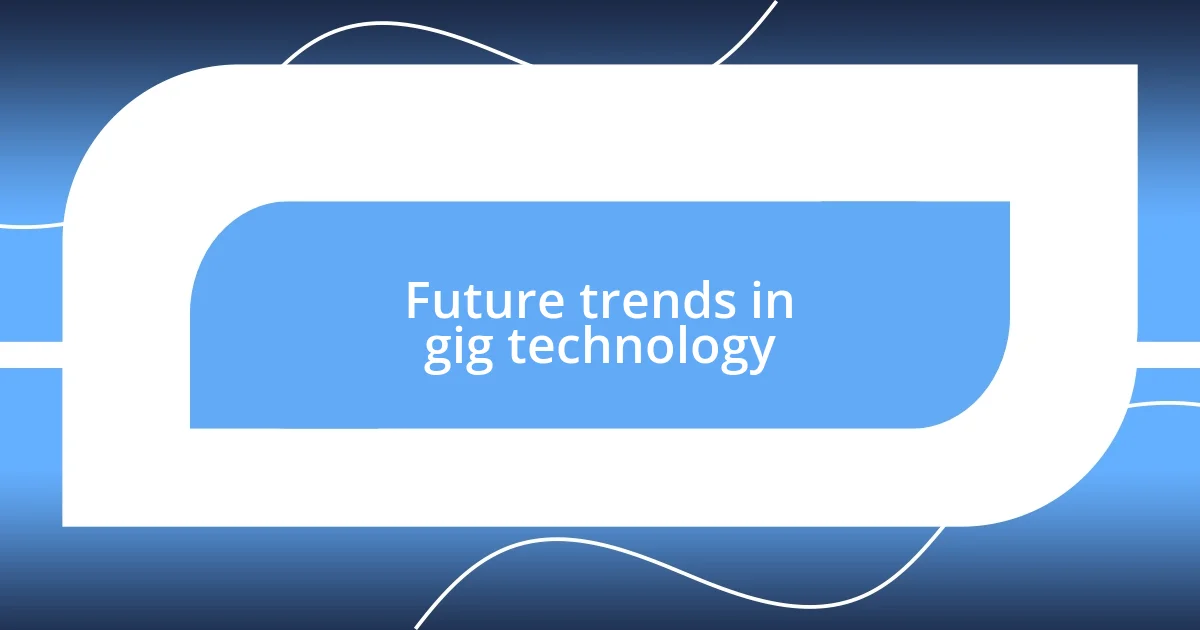
Future trends in gig technology
The future of gig technology is bound to reshape how we connect and earn. For instance, I can already see the rise of AI-driven platforms that intelligently match gig workers with projects suited to their skills. Imagine a system that not only helps you find work but does so while learning your preferences and optimizing your schedule. It feels exciting to think about how this could alleviate some of the time and stress associated with searching for gigs.
I often contemplate the role of blockchain in enhancing payment systems for gig workers. I’ve had my share of waiting for payments, and just the thought of instant, secure transactions gives me hope for a smoother experience. Could decentralized payment systems eliminate those frustrating delays and allow my earnings to flow more freely? It seems like a promising direction that could enhance financial security for many, including myself.
Looking ahead, I anticipate an increased focus on community-driven platforms that foster connections among gig workers. As someone who has sometimes felt isolated in my freelance journey, I see the value in networking opportunities and support systems that could arise from these relationships. Don’t you think having a supportive community can transform our experiences? Embracing collaboration and shared resources could redefine how we navigate the gig economy, turning it into a more connected and supportive environment.












